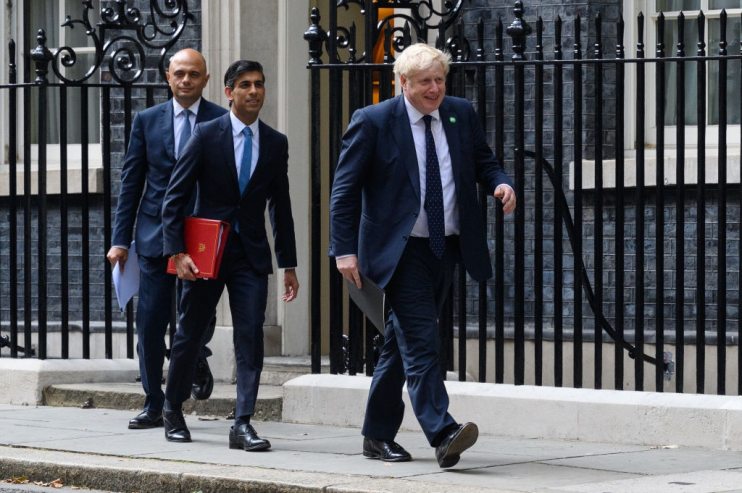Boris Johnson refuses to rule out new tax rises before next election

Boris Johnson has said he has an “emotional commitment” to not hiking tax again before the next election, but refused to rule it out just hours after increasing National Insurance and dividend tax.
Johnson refused at today’s press conference on three occasions to promise he would not raise taxes again, commenting only that “I certainly don’t want any more tax rises this parliament”.
Rishi Sunak, meanwhile, hailed the “permanent new role for the government” in implementing social care reforms today, while saying this requires “a permanent new way to fund it”.
The chancellor said the dual 1.25 per cent increases in National Insurance and dividend tax were “fair” and “honest”.
The tax rises are expected to raise £12bn in tax revenues per year, with the majority spent on reducing the NHS backlog in the first three years before then being spent primarily on social care costs in a long-awaited reform package.
The tax hikes, which will also hit people over the pension age that are still working, have been criticised widely by business groups and Tory grandees, with the increase in National Insurance breaking a manifesto promise from the 2019 election.
The government also broke another manifesto pledge today when it temporarily suspended the pension triple lock, after concerns that it could see old age pensions increase by 8 per cent this year alone.
The Prime Minister said that a “pandemic wasn’t in our manifesto” either.
“I certainly don’t want any more tax rises this parliament…of course that’s the case,” he said.
“But there’s a reality in these things – these are decision chancellors make in the course of budgets.
“I believe in leaving more money where possible for people to spend on their families and own priorities – of occurs that’s right.”
From October 2023 people with assets of between £20,000 and £100,000 will still contribute to their adult care costs, while people with assets of under £20,000 will not pay for any of their costs.
The current floor for having to contribute is £23,500.
The maximum cap on individual costs will be £86,000 – about three years of care costs – while the rest will be paid by the government.
Proceeds from the levy will be ringfenced to ensure they are spent on health and social care only.
Sunak said it would be “dishonest” to pay for the new spending by borrowing more money.
“Instead of individuals having to bare the catastrophic care costs, we as a country are deciding to share more costs collectively,” he said.
“This is a permanent new role for the government and as such we need a new permanent way to fund it.”